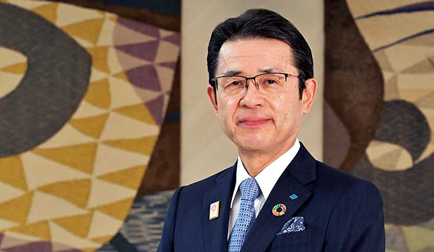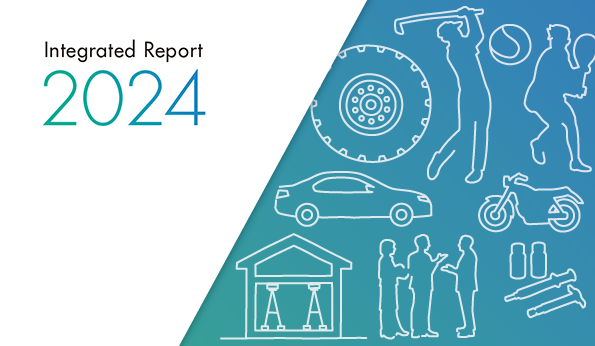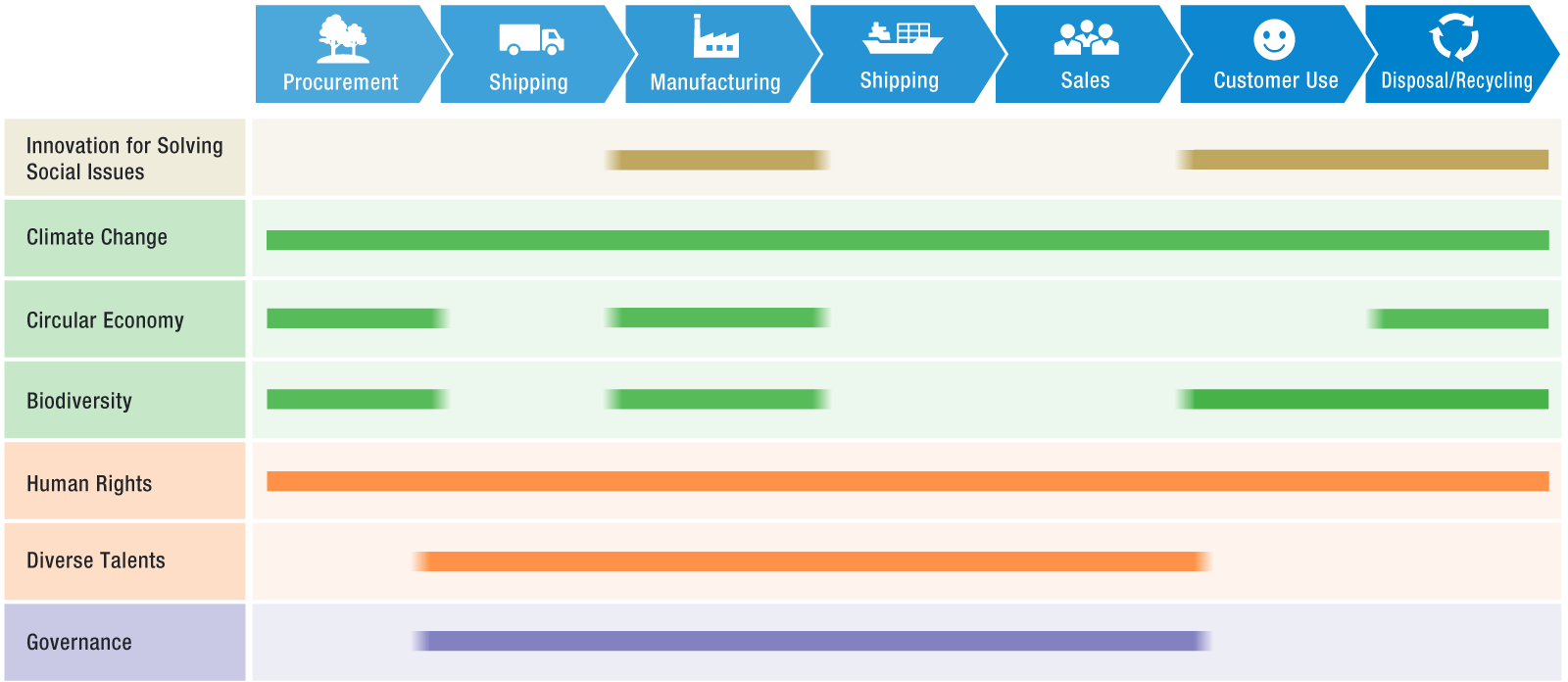|
Innovation for Solving Social Issues
|
A company that believes in the potential of rubber materials and strives to create new social value.
|
The Company provides industry-leading rubber technologies in addition to new technologies and services that these technologies spawn. We are always striving to provide new value with the aim of creating a healthy and prosperous society full of joy.
|
|
Climate Change
|
A company committed to proactively reducing CO₂ emissions.
|
The Company’s business activities produce a large volume of greenhouse gas emissions. To realize a decarbonized society, we are working to reduce emissions across the entire supply chain and achieve carbon neutrality by 2050.
|
|
Circular Economy
|
A company that promotes resource circulation through its products and services.
|
The Company is a manufacturer that consumes many resources. To ensure the sustainability of its use of limited resources, we promote resource circulation throughout the entire process, from product procurement to disposal.
|
|
Biodiversity
|
A company that understands its dependence on and impact on natural resources, such as natural rubber, and works to coexist with surrounding ecosystems.
|
The Company’s businesses entail risks that impact ecosystems using natural resources and chemical materials as well as the process of product usage. To ensure that the benefits of ecosystems and natural resources are passed on to future generations, we strive to minimize the negative impacts of our business activities and work towards the conservation and restoration of biodiversity.
|
|
Human Rights
|
A company that respects the human rights of everyone involved with us. |
The Company’s businesses are entwined with the lives of many people, including customers, suppliers, and those living around our bases. To continue providing joy and well-being for all, we enhance our understanding of human rights and promote efforts to respect human rights.
|
|
Diverse Talents
|
A company that develops together with diverse talents. |
The Company is a global entity that brings together diverse employees. We realize workplaces in which people mutually recognize each other and ensure that the total capabilities of our teams lead to increased corporate value.
|
|
Governance
|
A company that upholds integrity with our stakeholders and builds their trust. |
The Company is supported by its customers, suppliers, investors, and other stakeholders. We strive to be reliable and worthy of trust, and to build a strong and flexible management foundation that is responsive to turbulent changes in society.
|





